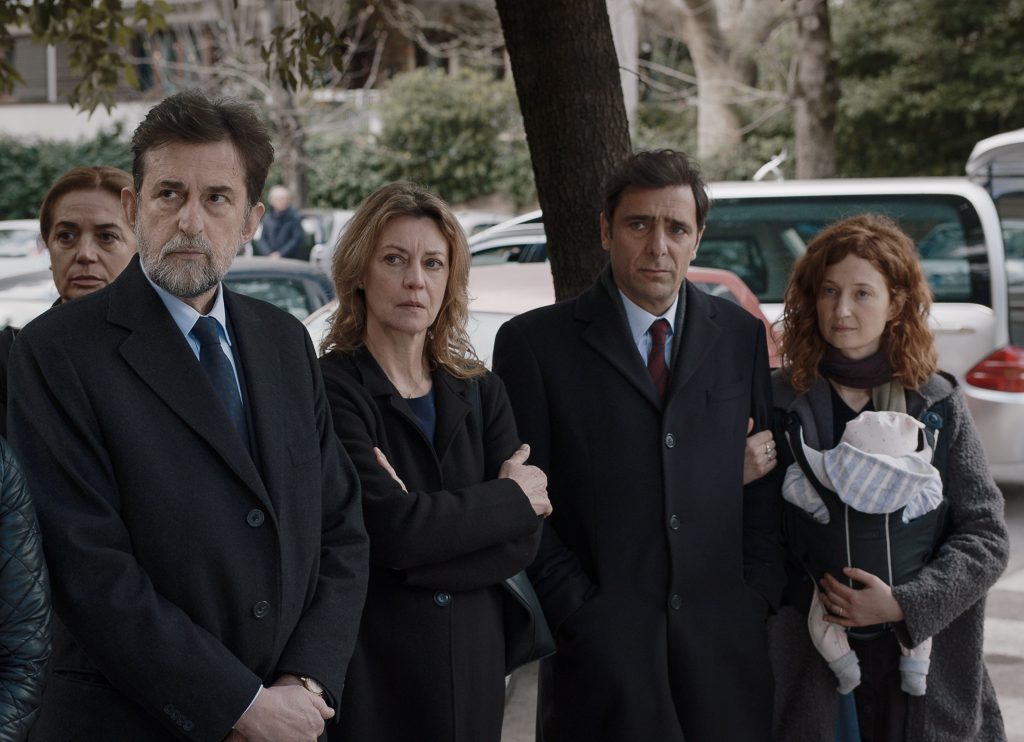 According to the European Institute for Gender Equality, Bulgaria ranks in nineteenth place in the EU Gender Equality Index, having fallen two places down the list since 2010. It feels almost unsurprising to read data like that when you look at the lives of the female characters within the Bulgarian-French co-production, Women Do Cry.
According to the European Institute for Gender Equality, Bulgaria ranks in nineteenth place in the EU Gender Equality Index, having fallen two places down the list since 2010. It feels almost unsurprising to read data like that when you look at the lives of the female characters within the Bulgarian-French co-production, Women Do Cry.
Co-directed by Vesela Kazakova and Mina Meleva, the film plunges you into national sexual politics and individual experience. As noted in the script, the Bulgarian language has no word for “gender”, only the words “male” and “female” so there is a lot of notions of gender identity and stereotypes to unpack here. Whilst the country battles not to have the word “gender” introduced, the lives of the women in one family hold up a mirror to the various debates that rage on.
Sonja (Maria Bakalova) has just been told that her seemingly wonderful lover is (a) married with a child and (b) HIV positive. She must now come to terms with her own diagnosis. Her sister Lora (Ralitsa Stoyanova) is the only woman working on a construction site. Their aunt Veronica (Bilyana Kazakova) appears to be dealing with post-natal depression as well as an extremely overbearing husband. Her sister, Yoana (Vesela Kazakova) is contemplating gender reassignment in order to live life as a man.
This character-driven drama really homes in on how these women start to unravel against social expectations. Sonja is convinced that she will be reviled as a whore. Veronica cannot seem to find happiness in “just being a housewife”, having given up her medical career. Yoana is passionate about trans rights but is subjected to homophobic abuse. The patriarch of the family (Iossif Surchadzhiev) is a bitter and violent old man. These characters are spiraling not only because of their circumstances but because of outdated systems of belief.
The women in this film have learned to lean on each other heavily. They are each other’s primary support network, not least because the men in their lives are primarily absent. Their (at times violent and destructive) influence, however, cannot be ignored.
Maria Bakalova gives everything of herself to this role – emotionally, physically and vocally. Her humiliating experience at the gynecologist may cause some viewers to recoil in shame with her. “I deal with gynecological problems, not someone who has been fucking left, right and centre. This is what democracy brings,” the disgusted doctor yells at her. There is an equally disturbing scene where she smears her pet kittens with red lipstick to make them “look like whores”. She is a lonely, scared nineteen year old who has fallen victim to a label.
 Equally powerful is Bilyana Kazakova’s performance. Her baby cries all day every day. Her husband phones her constantly to check that she is being a good mother and not “spending his money”. There is a really frightening scene where she holds a kitchen knife to her screaming child before contemplating throwing herself off the balcony. It’s an incredibly raw performance that captures the trauma of being a new mother in a patriarchal society.
Equally powerful is Bilyana Kazakova’s performance. Her baby cries all day every day. Her husband phones her constantly to check that she is being a good mother and not “spending his money”. There is a really frightening scene where she holds a kitchen knife to her screaming child before contemplating throwing herself off the balcony. It’s an incredibly raw performance that captures the trauma of being a new mother in a patriarchal society.
All of the women experience an identity change at some point, whether that is from daughter to mother or sister to aunt. But they are all labeled, throughout their lives, in relation to the traditional family set up. This leaves Yoana, in particular, feels lost in such a society. These labels are hammered home through the presence of the nest of storks, which features at various points, complete with two young chicks. The very symbol of motherhood is literally following these women around. No wonder the characters spend so much time professing their guilt for how their lives are unfolding.
What does let the film down, however, is the way in which outdated gender terms – and outright slurs – are thrown around by the characters. It could be argued that this is used to demonstrate their ignorance on matters such as gay sex or sex work, but it does make you flinch when such conversations are had.
Vesela Kazakova and Mina Meleva offer up a glimpse into the lives of just one family, but open up a debate as to how women (and notions of gender norms or stereotypes) are still regarded in some cultures.
Women Don’t Cry is a character-driven drama that relies on excellent performances from its cast. It uses the national protests around the word “gender” as a chance to explore long-held stigmas and stereotypes.
Women Do Cry is screening at the Glasgow Film Festival 2022. Click here to get your tickets.
- Six of the Best: Not Quite Christmas - December 12, 2024
- Glasgow Film Festival 2025 Announces Country Focus, Special Events and UK Wide Screenings - December 11, 2024
- Armand – Review - November 4, 2024




